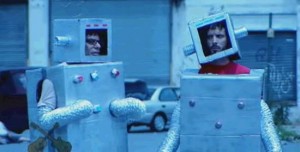Posted on February 25, 2009
They’ll Poison Our Asses!
 Sometimes very smart people can be deeply stupid to the point of absurdity. Such is the way of the Singularitarian. However, since I’m fairly certain that not many of you have the faintest idea who Singularitarians are, let me take a minute to try and define them.
Sometimes very smart people can be deeply stupid to the point of absurdity. Such is the way of the Singularitarian. However, since I’m fairly certain that not many of you have the faintest idea who Singularitarians are, let me take a minute to try and define them.
Singularitarianism is the ideology behind not only a belief in The Singularity, but that such an event would be a good thing to have happen to humanity. However, since I’m also fairly certain that most of you haven’t heard of The Singularity either, let me back up even farther and start from there. Read More
Posted on January 17, 2009
I’m A Mighty Fiancé!
 For those of you a little quicker on the uptake than others, you may have noticed all of the little hints I’ve been slipping into the blog lately. If not, I slipped a ring on Brittany’s finger last night. With me having already informally proposed, and with her having already informally accepted back around Christmas, I was pretty confident that I’d get a yes. Read More
For those of you a little quicker on the uptake than others, you may have noticed all of the little hints I’ve been slipping into the blog lately. If not, I slipped a ring on Brittany’s finger last night. With me having already informally proposed, and with her having already informally accepted back around Christmas, I was pretty confident that I’d get a yes. Read More


You must be logged in to post a comment.